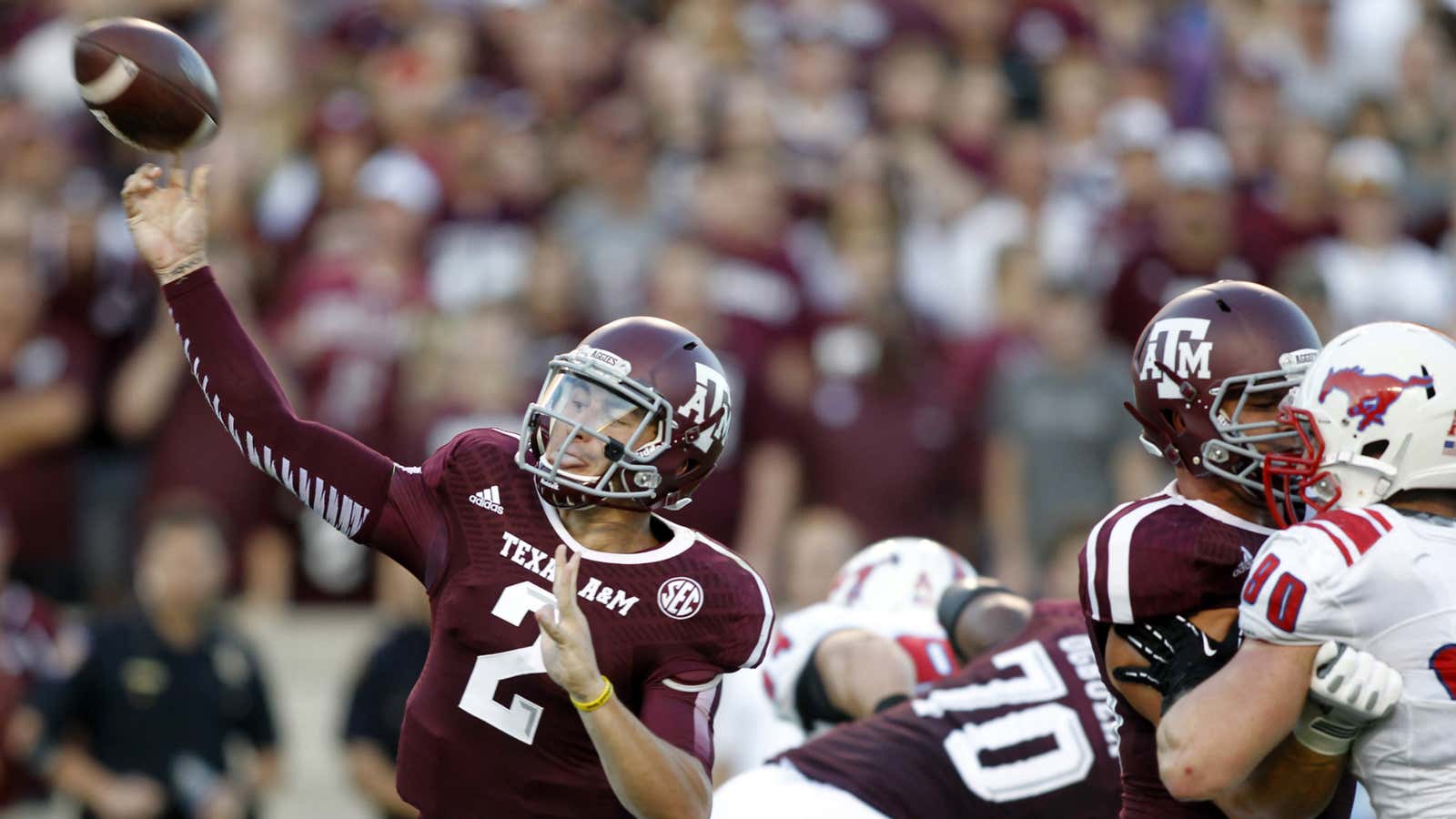American college football is, by some measures, the second most popular sporting league in America. That makes it a lucrative business, and therefore, hardly surprising that video game giant Electronic Arts (EA) would want to capture a piece of the pie with a college football game.
That is, until this ill-fated foray into student athletics got complicated. In its quarterly earnings (p.3) on Oct. 29, EA confirmed for the first time reports that it will set aside $40 million to cover legal expenses from a lawsuit it settled with disgruntled, ex-college players last month. In the case, a group of ex-players argued they should be compensated for the use of their likenesses in EA’s video game, NCAA Football.
It’s a relatively small sum for a company expected to rake in $396 million in profit next year. But the settlement carries greater significance for the multi-billion dollar US college sports economy. The rivers of gold that flow from huge broadcast deals, gate takings and merchandising are used to fund just about everything on campus (including the salaries of coaches and subsidies for other sports) except compensation for players, who make nothing. The ex-players who filed the suit have said they want to divide the $40 million settlement between the roughly 200,000 to 300,000 current and former football players whose likenesses have appeared in games by EA Sports. That works out to a paltry payout of about $160 a player, and the settlement still needs to be approved by the courts before the complex matter of distributing it even begins.
But it would still mark a symbolic victory in the debate over whether American college athletes should be paid. The governing body for American college sports, the National Collegiate Athletic Association (NCAA), strictly enforces rules that prevent players from accepting any form of payment beyond scholarships. In a recent example of just how contentious these rules are—they’ve even been compared to slavery—a star quarterback for Texas A&M University, Johnny Manziel, was alleged to have accepted payments for autographing memorabilia. Perhaps hoping that one day the rules would change, Manziel has separately taken legal action to protect a trademark on his nickname, Johnny Football, from which he himself is not currently allowed to profit. Defenders of the status quo argue that college athletes often receive a free education that can be worth tens of thousands of dollars a year.
Being caught in the middle of this raging debate about the future of American college sports was evidently was too much for EA, which last month announced it would discontinue its college football game altogether. But the corporate loss could turn into a bigger win for college athletes if it sets a precedent of companies having to pay for a slice of players’ glory.




